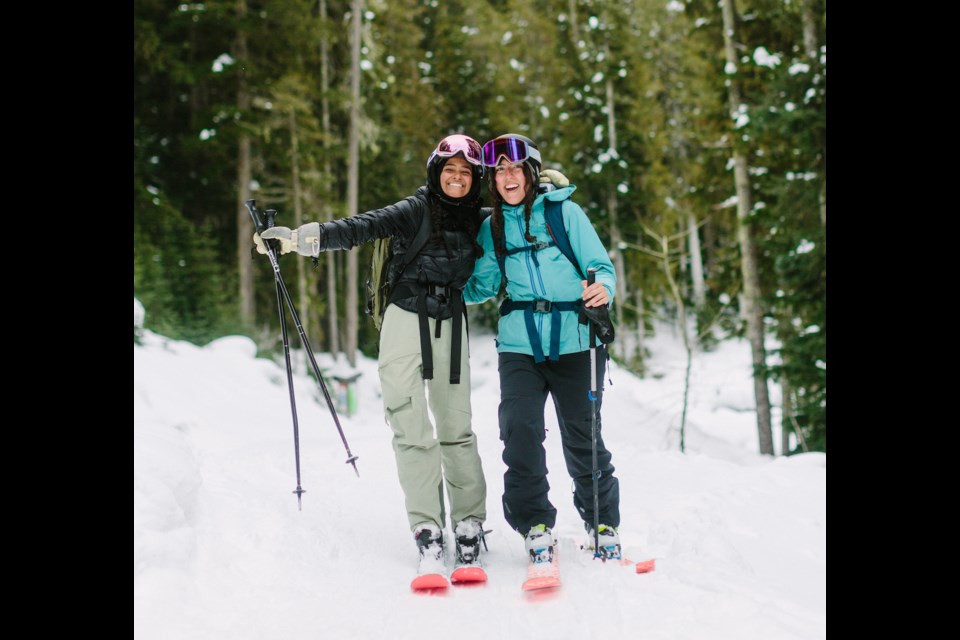Heading into the backcountry can be an exciting, but also nerve-wracking experience, especially if you are new to the mountains in B.C. but a local group is hoping to help change that.
Mountain Mentors have created one-to-one mentorship programs for women and gender-diverse individuals to make the backcountry a safe space for all.
“We provide one-to-one mentorship through a very extensive pairing process. We have three cohorts; in the winter we have ski touring and split boarding, and in the summer, we have a climbing cohort as well as a hiking cohort,” Mountain Mentors president Monika Tesiorowski told The Squamish Chief.
“The cohorts differ in sizes between 60 individuals for what we typically see for ski and snowboard, all the way to our biggest cohort which has been 120 individuals in our hiking program.”
Mentors and mentees are paired together and make the commitment to go out once a month throughout the season.
Mountain Mentors serves communities across the Greater Vancouver, Squamish, Whistler, and Pemberton regions, but pairs can recreate wherever is best for them.
“Pairs recreate wherever it is most convenient for them, and where it makes the most sense depending on their skill level and goals for the season,” program manager Indra Hayre said.
“Some pairs will use the Sea to Sky Gondola if they have passes; others will frequent the Garibaldi region and Red Heather Hut. Because of our relationship with Whistler Blackcomb and the Epic Promise program, we also have slackcountry passes that we use to host socials and offer to folks who don't have them but want to access the backcountry off of the mountain.”
Hayre said the program is important for areas such as Squamish where it can often be difficult to find like-minded people with similar life experiences.
“We live in a beautiful place where so many people move here to connect with the outdoors and advance their skillset, but sometimes it can be challenging to meet like-minded people with similar life experiences who we feel psychologically safe with to access these spaces with,” Hayre said.
She said Mountain Mentors strives to remove some of the barriers that women and gender-diverse folks experience in the backcountry, as well as give people the opportunity to share the knowledge that they've received over the years.
“Programs that create access for people are important because they help change what it means to exist in these spaces, and they can empower more women and gender diverse folks to take up space confidently in environments and communities that weren't necessarily built with them at the forefront,” she said.
Tesiorowski said the end goal for Mountain Mentors is for mentees who have completed the program to become mentors and encourage other women or gender-diverse people to explore the backcountry.
“Our ultimate hope is that they do want to become mentors, but if not, they're able to take this sense of confidence and trust in their own abilities back to their communities and maybe invite another woman into the backcountry,” she said.
“The goal is to have more people generally feel that they can go out and feel that they can invite others into this space, because it can feel super intimidating.”
The winter Mountain Mentors program runs from December through to March and costs $175 for the entire program.
The Mountain Mentors website states that “prospective mentees and mentors should either already have, or be obtaining their Avalanche Safety Training 1 (AST1) course. Additionally, they must either own or have access to an avalanche shovel, beacon, and probe as well as the gear necessary to participate in their activity of choice (eg: splitboard, skis, skins, boots, poles, snowshoes)”.
Applications for the winter cohort are and will close on Oct. 27.
